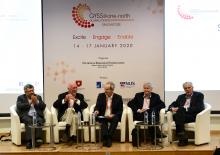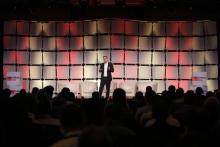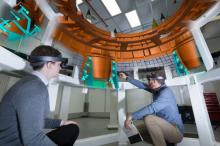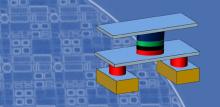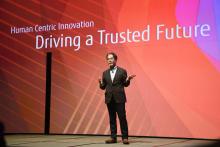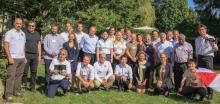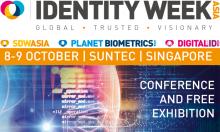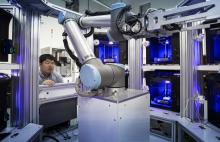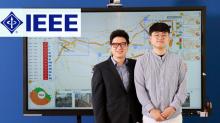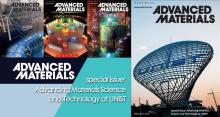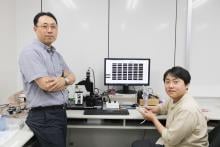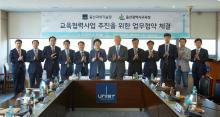Computer Science
News
07 Feb 2020
A research group led by Professor Li Zhang, Associate Professor, Department of Mechanical and Automation Engineering at The Chinese University of Hong Kong (CUHK), has developed a strategy that selects the optimised bio-inspired microrobotic swarms in different bio-fluids. The swarms reported may have great potential in medical applications, and this work is an important intermediate step from a fundamental understanding of microrobotic swarms to their clinic applications. The related results have been published in Nature Communications, a prestigious international scientific journal.
07 Feb 2020
A genetic engineering team of undergraduate students at The Chinese University of Hong Kong (CUHK) has been awarded a Gold medal at the International Genetically Engineered Machine (iGEM) 2019 Giant Jamboree held in Boston, USA. Under the project named “Banana Savior: The X Sense”, they have designed a rapid test for a new disease Banana Xanthomonas Wilt (BXW). They hope the novel design can help farmers in Africa and quarantine departments to realise early detection of the disease and help stop it from spreading. This is the sixth time that a CUHK team has won gold in the annual premier synthetic biology competition.
05 Feb 2020
The origin of how the Universe created its voids and filaments can now be studied within seconds after researchers developed an artificial intelligence tool called Dark Emulator.
04 Feb 2020
Pressing issues in science and technology, including in healthcare and climate change, took centre-stage at the recent Global Young Scientists Summit 2020 where eminent scientists and talented young researchers worldwide convened in Singapore.
04 Feb 2020
EmTech Asia 2020 has been postponed to 4-5 August 2020 from its original February dates due to the Covid-19 situation in Singapore having higher public health impact.
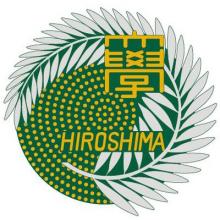
28 Jan 2020
In a recent study from Hiroshima University, researchers turned to mathematics to predict hive patterns in humans.
24 Jan 2020
Machine learning augments experimental and computational methods for cheaper predictions of material properties.
11 Dec 2019
Join Shelley Peterson, Emerging Technologies Lead and Principal Investigator for Augmented Reality at Lockheed Martin, as she speaks at EmTech Asia this February.
09 Dec 2019
Researchers have announced the demonstration of high-speed spin-orbit-torque magnetoresistive random access memory cell compatible with 300 mm Si CMOS technology.
22 Nov 2019
Forward Leading is to host AI & Big Data Leaders Summit in Hong Kong on December 5 & 6, at the Hyatt Regency Tsim Sha Tsui, bringing together over 150 data and tech leaders from a wide range of industries.

22 Nov 2019
Sensing a hug from your friend through a video call with him/her may become a reality soon. A joint-research team consisted of scientists and engineers from City University of Hong Kong (CityU) and Northwestern University in the United States has developed a skin-integrated virtual reality (VR) system, which can be controlled and powered wirelessly. The innovation has great application potential in communications, prosthetic control and rehabilitation, as well as gaming and entertainment.
11 Nov 2019
International collaboration is finding new ways to improve how scientists develop and test models to forecast dengue infection.
11 Nov 2019
Join us at the Singapore FinTech Festival + Singapore Week of Innovation and Technology 2019 (SFF x SWITCH)
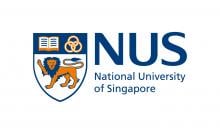
07 Nov 2019
Called Apache SINGA, the NUS system is the first in Southeast Asia to be placed among the top 300 projects in Apache Software Foundation, the world’s largest open source software community. This enables users globally to use the free software to develop cutting-edge AI solutions such as image recognition, disease prediction and advanced malware detection.
25 Oct 2019
Fujitsu held the Singapore leg of its Fujitsu World Tour 2019, a series of trade showcases across 11 countries over six continents that presented the latest in Fujitsu’s technology, services and solutions. With the theme, Human Centric Innovation: Driving a Trusted Future, the event focused on insights and innovative technology solutions to connect and build trust among governments, businesses and individuals. The Fujitsu World Tour 2019 Asia Conference Singapore was attended by business decision-makers and IT influencers at JW Marriott Singapore South Beach on Tuesday, 22 October 2019.
21 Oct 2019
Project to explore new methodologies and use cases in the fields of quantum-inspired computing and artificial intelligence with the world’s 1st on-premises installation of Fujitsu Digital Annealer at SMU in Singapore.
16 Oct 2019
The best tech conference in Asia is back! Early bird rate expires on 8th November 2019.
09 Oct 2019
In the wake of major disasters, where structures collapse or people get trapped in hazardous situations, the first 72 hours are critical. Urban search and rescue teams, as well as first responders such as police and medical units, race against the clock to locate survivors, often at their own risk.
01 Oct 2019
Exploring Next-Generation Government, Commercial & Citizen Identity Solutions
24 Sep 2019
Latest batch of speakers announced. Don't miss the chance to hear from these global industry leaders at the Singapore Week of Innovation and TeCHnology this November as they share different perspectives and insights on deep tech and emerging technologies today.
12 Sep 2019
Researchers from China, France and the USA have evaluated China’s success in stemming emissions from its coal-fired power plants (CPPs).
03 Sep 2019
Korea’s Electronic and Telecommunications Research Institute (ETRI) will present some of their innovative advancements at the upcoming Internationale Funkausstellung (IFA), the world’s largest consumer electronics trade show.
03 Sep 2019
A recent study, affiliated with South Korea's Ulsan National Institute of Science and Technology (UNIST) has presented an artificial intelligence technology that can predict traffic conditions for the next 5 to 15 minutes at an error rate of less than four kilometers an hour.
31 Aug 2019
Advanced Materials publishes a special issue, highlighting some of the outstanding works of South Korea's Ulsan National Institute of Science and Technology (UNIST).
30 Aug 2019
Professor Jae Eun Jang’s team developed electronic skin technology for robots or electronic devices to feel pain through sense of touch. Expected to be applied in humanoid that needs 5 human senses and patients wearing prosthetic hands.
29 Aug 2019
Five research teams, affiliated with South Korea's Ulsan National Institute of Science and Technology (UNIST) have been included in the list of Samsung's 2019 first half future technology fostering projects,
29 Aug 2019
UNIST signed a Memorandum of Understanding (MoU) with Ulsan Metropolitan Office of Education to forge ahead toward achieving educational excellence.
27 Aug 2019
A doctoral candidate within the School of Electrical and Computer Engineering at South Korea's Ulsan National Institute of Science and Technology (UNIST) has been offered to join Qualcomm Inc.
Events
Sorry, nothing coming up for this discipline
Researchers
Sorry, nothing coming up for this discipline
Giants in history
Sorry, nothing coming up for this discipline




